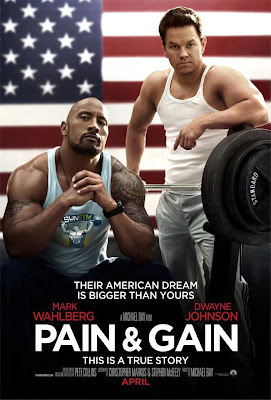Waiting for Superman Fights For Truth and Justice
Waiting For Superman = 4 out of 5 Stars
Michelle Rhee: You wake up every morning thinking how crappy an education kids are getting right now.Davis: You think kids are getting a crappy education?Michelle Rhee: Oh I don't think they are, I know they are.
It generally takes a lot for me to recommend a documentary on better terms than whether it was good or bad, or if it’s strong enough to catch in cinemas. Some, in recent time, have naturally led me to strong recommendations, like King of Kong or Murderball, which are very well made, but also edited to have a fairly linear plot line, despite being a doc. For docs such as this one, where the film has a lot of strong things to say about its subject matter, but also functions like a lecture or an info-dump, it can be harder to strongly get behind. However, for this particular film, I would say that the subject matter is important enough and made well enough to go check out much sooner rather than later.
Waiting for Superman is a documentary about the state of America's public school system. The film follows a handful of young kids at various academic levels, ages, and financial standings, as they are put into a required lottery in an attempt to gain one of the few spots in various schools that would lead these kids to having a better education, therefore, getting a better chance at life. The film also provides us with plenty of information regarding the public school system, various charts and figures about the nations standing in the world, and averages regarding different states and neighborhoods. There are also a number of interviews with varying influential educators, including social activist Geoffrey Canada and former Washington D.C. Chancellor Michelle Rhee.
The film was directed by Davis Guggenheim, who previously directed Al Gore's global warming doc, An Inconvenient Truth. It is also inconvenient that despite being essentially the last superpower in the world, that our educational system is, as many say in this film, "broken." While I was fortunate enough to be from an area where the system is frankly just not as bad as some of the places portrayed in this film, the film still effectively portrays its facts.
As I said, there is not so much as through line in terms of having an A to B plot, besides introducing the kids and seeing if they make it into the nicer schools by the end, but the various segments in between are all very interesting. I was especially interested in the Michelle Rhee segments for example. She had the task of trying to really shake up the system, by removing tenure from teachers in order to get rid of the ones everyone knew were ineffective, but met almost no support for trying to do so. It is a series of segments like these that had me very intrigued.
Guggenheim narrates the film, which, in some docs can be distracting, but he has the right kind of tone that never makes it feel intrusive. Add to that his good use of animated graphs, stats, and charts, along with some well juxtaposed imagery throughout, and the film is quite solidly made.
You always have to take documentaries as they come, since they really are from an individual’s perspective, but everything has been presented well here. The facts are interesting to follow and for a doc that focuses on telling its audience a lot of info, it is quite engaging.
Geoffrey Canada: When you see a great teacher, you are seeing a work of art.





Comments
Post a Comment